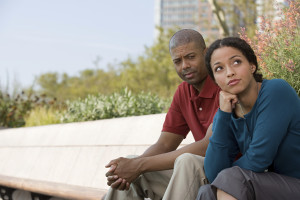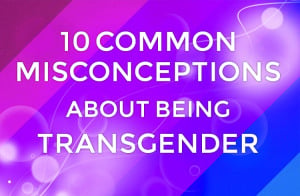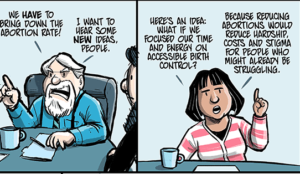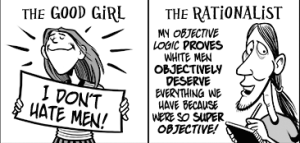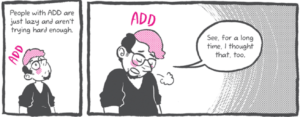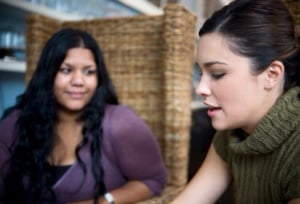(Content Warning: rape, sexual assault, sexual violence)
“I’ve been raped.”
I’ve said those words many times before. I’m really open about my experience of sexual violence. And as the topic of sexual violence recently came up during a conversation with a new friend, I decided to tell them that I have experienced sexual violence.
I saw them struggle to respond to this news.
“No wonder why you’re so strong!” they eventually offered. “Your experience made you a better person.”
I sighed heavily.
I am strong. I am resilient. And it’s really kind of my friend to attempt to compliment and comfort me after I told her about such an emotional, painful event.
Often, we struggle to know what to say to people who have been sexually assaulted. I understand that – it’s a really difficult thing to navigate, and it’s hard to know what to say when someone you care about is hurting.
But here’s the thing: My friend’s words aren’t comforting to me at all.
While she intended to make me feel better, she ended up perpetuating some harmful messages about rape.
But to avoid inadvertently harming anybody further, it’s crucial that we think deeply and carefully about the “compliments” we commonly pay to people who have been sexually violated.
Here are a few of these common compliments, exactly why they may be harmful, and what you can offer your loved one instead.
1. ‘You’re So Inspiring!’
Of all backhanded compliments, this one is probably the most common.
I recently participated in a protest that aims to evoke discussion about sexual violence and serve as a way of healing those who have been violated. At the protest, I met someone who said he enjoys participating in the protest because he’s always “inspired” by the bravery of those who have experienced sexual violence.
Immediately, I started panicking. I was planning on talking about my rape on the evening of the march. What if my story was too sad? Not inspiring enough? What if I make people feel bad instead of good about themselves?
Then I reminded myself that I shouldn’t be worried about that. My story is sad – I shouldn’t make it sound more happy or positive than what it is solely to help other people.
I tell my story to heal myself, not to inspire others.
As I’ve written before, people are often expected to talk about their experiences of sexual violence in order to inspire others.
This can be incredibly problematic: Not only do we dehumanize people when we reduce them to sources of “inspiration,” but we also often end up silencing those who want to tell their story but don’t feel that it’s inspiring or positive enough.
If you like being around those who have experienced sexual violence not because you want to support us, but because you want us to inspire you, please rethink your motives.
It’s one thing to be positively moved by someone’s story; it’s another to reduce them to a source of inspiration.
Our value as humans should not depend on how inspiring we are.
Value me on the days I conquer the world, but value me on the days I can’t get out of bed, too. Value me when my story makes you feel positive and comforted, but also when it shakes you to your core and reminds you that the world can be a really cruel place.
Value us not because we inspire you, but because we’re human.
2. ‘You’re Not a Victim – You’re a Survivor!’
I’ve written about labels before. While I focused then on the queer community, some of those ideas apply to nearly all marginalized groups: Self-identification is a powerful and necessary tool in healing and fighting oppression.
And this applies to people who have been sexually assaulted, too: Choosing to label ourselves and our experiences in a certain way can be really empowering.
Some people who have experienced sexual violence use the term “survivor” – and many sexual violence organizations opt to use this term, too, which is why so many well-meaning people use it.
And for many people, it feels empowering to use the term “survivor.” It reminds them that they have overcome a difficult experience.
In many ways, using the term “survivor” to describe those who have experienced sexual violence is powerful and beautiful. But it’s important to remember that some people don’t identify with the term – and it’s crucial we don’t impose that label on them.
I personally understand the appeal of the term “survivor,” but I’ve never identified with the term. On the other hand, I don’t mind using the term “victim” because I was, indeed, the victim of a horrific crime. I’m not ashamed of the fact that a crime was committed against me, simply because it wasn’t my fault.
So when people inadvertently demonize the term “victim,” it makes me – and many others – feel really uncomfortable. It feels like we’re having a label taken away from us, and another label imposed on us.
You will come across people saying, “You’re not a victim, you’re a survivor.” While their intentions are great, many of us don’t like the ‘survivor’ label being imposed on us.
Of course, some people prefer neither “survivor” nor “victim,” and their choice needs to be respected also.
The labels we choose for ourselves are incredibly personal. If someone chooses to use certain language to describe themselves and their experiences in a certain way, it’s vital we honor their choice.
3. ‘I’m Really Angry/Upset/Sad That Somebody Hurt You’
Thank you, but can we focus on my feelings for a second?
Don’t get me wrong. It’s okay to tell someone that you’re hurting for them. It’s incredibly important to express your emotions.
But if the first thing you talk about is your own feelings, without even bothering to inquire about mine, then I’m going to be hurt.
And maybe that seems selfish, but if there is one thing we can be selfish about, it’s the events that traumatize us specifically.
I – and many others – have avoided talking about our rapes because we’re afraid it might upset the people around us. We don’t want to feel responsible for how our experiences negatively impact those who love us. We are sometimes so afraid to speak out that we end up being silent about our rapes – even when that’s not healthy for us.
If you focus on how upset the news made you, we might feel like you’re actually upset with us – even though that might not be what you meant to say at all.
When we make ourselves vulnerable to you by telling you about our rape, please don’t make us feel like we did something wrong by opening up to you.
Before telling us how you feel, thank us for telling us about our rape. Remind us that you’re there for us and that you support us.
Just remember that it’s not a good idea to dominate a discussion about someone else’s rape by focusing on your own feelings.
4. ‘Don’t Worry – You’re Still a Virgin’
I recently had a number of conversations with people who had been sexually violated at a young age.
One thing we were all surprised by was the fact that so many of us were told that we were still virgins because, although we had been sexually assaulted, we had never had consensual sex.
The most surprising thing about being told that we were still virgins is that it was said to comfort us. It was said as if being a virgin means we’re somehow still valuable.
And in all instances, it was assumed that being a virgin was something we were worried about – even while we were dealing with the emotional stress of being violated.
There are a number of problems with the concept of virginity – and all of them are highlighted by this attempt at comfort.
Firstly, there’s no real, universal, comprehensive definition of virginity because we all define sex in different ways.
Secondly, virginity is a construct that perpetuates the idea that sex has the ability to change a person. By valuing virginity, society makes it easy to sex-shame (or slut-shame) those who have sex outside of socially acceptable boundaries.
Now, don’t get me wrong: If someone personally values their own virginity and it means something to them, that’s okay. It’s their choice whether they want to have sex or not.
But if we impose the construct of virginity onto everyone and act as if it has some kind of universal value, it’s a huge problem.
Valuing virginity is part of the sex-negative culture that makes rape culture possible by perpetuating normative ideas about sex.
When we attempt to comfort people who have been sexually violated by saying, “Don’t worry, you’re still a virgin!”what we’re actually doing is contributing to the culture that isolates them.
5. ‘Your Experience Made You a Better/Stronger Person’
Rape is often represented as something that makes you “stronger.”
TV shows use rape as part of a character development strategy, and even anti-rape activists and organizations present rape as a character-building experience.
But the idea of rape being some kind of character-building experience is really problematic.
Firstly, this “compliment” is hardly ever meant as a justification for rape. But to a lot of us, it might feel like a justification for rape.
A friend of mine recently summarized a lot of my reservations about this compliment when he said: “When people said my rape made me a better person, I asked myself: Was I such a bad person before that I needed to be assaulted to become a good person? If I was a good person to begin with, would I have needed to become better? Would I have been raped?”
Secondly, the assumption that someone became a better person after their rape is a really forward, intimate assumption to make.
For sure, traumatic experiences can build character. But they can also break character.
After my rape, I didn’t become stronger. I became very fragile, and I struggled to manage my mental illnesses. And I felt like a failure because I thought rape was meant to make you stronger, not weaker.
The reality is that many of us struggle to be “better people” after our rape because the trauma makes it difficult for us to hold things together.
What about those of us who don’t become “better” people? Those who self-destruct after their rape? Those who struggle with mental illness every day and don’t feel strong? Those who attempt or die by suicide? Those who don’t fit the “perfect victim” narrative?
Just because someone’s healing doesn’t fit the normative ideas we have about rape, doesn’t mean we should marginalize them.
And the idea that rape ultimately makes you a stronger or better person contributes to this marginalization.
***
It can be so difficult to figure out how to support those who have experienced sexual violence. In their tumultuous process of healing, it’s really hard to know what to say to make them feel better.
But if we truly want to support people who’ve been sexually assaulted, we need to be aware of how the things we say can inadvertently hurt them. We need to be willing to think carefully and consider whether our words are helpful or harmful.
After all, people who have been violated deserve our time, effort, and compassion – not poorly thought-through, half-baked “compliments.”
[do_widget id=’text-101′]
Sian Ferguson is a Contributing Writer at Everyday Feminism and a queer, polyamorous, South African feminist who is currently studying towards a Bachelor of Arts majoring in English and Anthropology. Originally from Cape Town, she now studies at Rhodes University in Grahamstown, where she works as vice-chair of the Gender Action Project. She has been featured as a guest writer on websites such as Women24 and Foxy Box, while also writing for her personal blog. Follow her on Twitter @sianfergs. Read her articles here.
Search our 3000+ articles!
Read our articles about:
Our online racial justice training
Used by hundreds of universities, non-profits, and businesses.
Click to learn more


